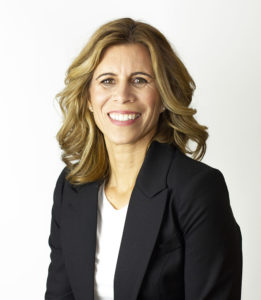CAMARILLO — California Gov. Gavin Newsom has appointed CSU Channel Islands (CSUCI) Early Childhood Studies faculty member Carola Oliva-Olson, Ph.D., to the state’s Early Childhood Policy Council.
Oliva-Olson will be among 20 early childhood education experts, educators and parents who will guide California’s efforts on early learning and care. The Early Childhood Policy Council will be chaired by California’s Surgeon General Dr. Nadine Burke Harris.
“Every child in our state should have the resources and support they need to live happy and healthy lives,” Gov. Newsom said. “We are bringing together experts from diverse backgrounds to create a Master Plan for Early Learning and Care that will be rooted in lifting up California’s children and families today, tomorrow and into the future.”
“I was beside myself,” Oliva-Olson said. “It’s such an honor to be of service in this capacity — to be able to work with these experienced, high-level professionals. I believe in the Master Plan and what the Governor is proposing for early childhood learning.”
The news came just weeks after Oliva-Olson learned she had been awarded a $115,000 grant from the Sobrato Family Foundation to support her statewide project called “Dual Language Learning Professional Development for the California Early Childhood Workforce.”
The Sobrato Family Foundation is a Silicon Valley-based philanthropic organization aimed at providing opportunity and education to low income populations.
“They believe in early childhood education nationally and they are super-committed,” Oliva-Olson said. “These funds will allow us to purchase children’s books and learning materials to support what the children are learning.”
The Sobrato grant is to complement a $1,101,461 grant Oliva-Olson received in January from the California Department of Education to fund the development of a dual language learning professional development program. The CSUCI grant was part of $5 million the state set aside in its 2018 budget to provide early childhood educators with training on effective strategies for dual language learning.
With the help of project’s co-director, Early Childhood Education Lecturer Mari Estrada, Ph.D., Oliva-Olson created an online training model for teachers, teacher assistants, coaches, administrators and other educational leaders currently working on early childhood studies across California.
The dual language learning program Oliva-Olson spearheaded consists of two courses on dual language learning for children birth to age five. So far, there are about 180 teachers, assistant teachers and coaches across the state taking the courses, which are offered in English and Spanish. Some take the courses online and others can take the courses face-to-face if they can travel to San Mateo, Santa Barbara, and Alameda County where the courses are offered.
About 60% of California children ages birth through five live in a household where a language other than English is spoken, making California home to the nation’s largest number of children learning English in addition to their home language.
“The majority of children in California are learning in language different than English,” Oliva-Olson said. “Dual language learning is critical because for a child to have access to the learning experiences we offer in early childhood programs, they have to know enough English. So we need to support these children and provide strategies to make sure they are developing skills and abilities other children are developing. This means we must support their home language and English language development while applying instructional strategies that allow all children to benefit from early learning education.”
Oliva-Olson pointed out that 90% of the brain is developed by the time a child turns five or six, so what they learn at this critical stage of life is extremely important as it can set the trajectory for choices that child may make through life.
“All people are rooted in culture,” she said. “Of all the things you’re learning in the early years, one important aspect is learning who you are in this world. If your culture and language is never mentioned and you don’t see yourself reflected in the culture that is deemed acceptable, you may make negative assumptions and conclusions about yourself.”
Oliva-Olson said she is gratified to see how many teachers, professionals and elected officials are working together on this project.
“It’s wonderful,” she said. “It’s a collaborative effort that shows how everybody is invested in the future of this state. It’s becoming a reality.”
About California State University Channel Islands: CSU Channel Islands (CSUCI) is reimagining higher education for a new generation and era. We are an innovative higher education institution that enables students to succeed and thrive – serving as an engine for social and economic vitality that provides the intellectual resources necessary for a thriving democracy. With more than 7,000 students, 1,200 employees and 14,000 alumni, CSUCI is poised to grow in size and distinction, while maintaining one of the most student-focused learning environments in public higher education. Connect with and learn more by visiting www.csuci.edu or CSUCI’s Social Media.

